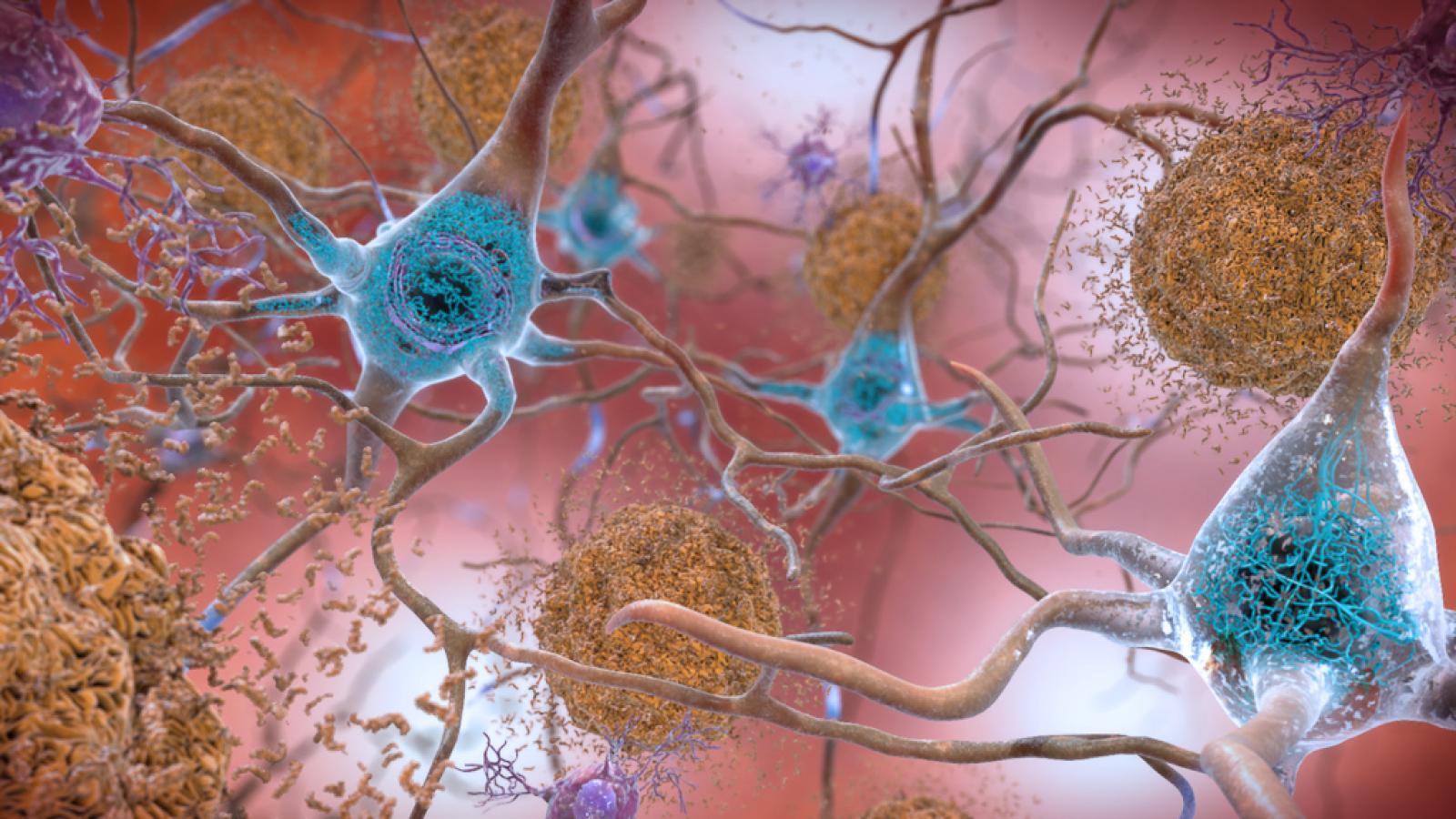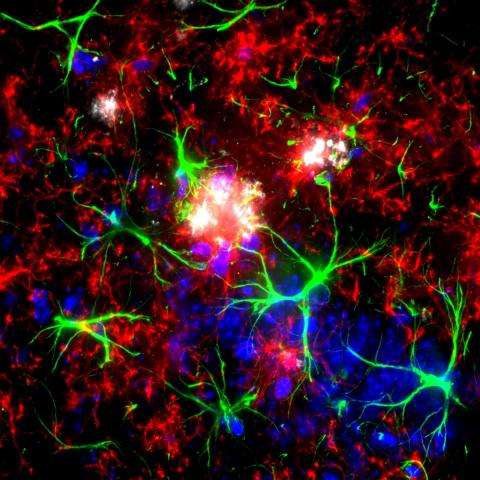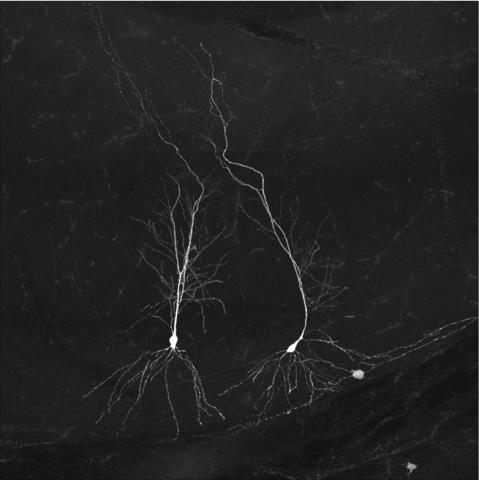What is mild cognitive impairment?
Mild cognitive impairment (MCI) is the term used when people experience noticeable problems with their memory or thinking, but not to the extent that it impacts the ability to perform daily tasks. As with the term dementia, MCI does not relate to a particular condition and can have a variety of different potential underlying causes.
Although it is not dementia, MCI can sometimes be a precursor to a neurodegenerative condition and each year about one in 10 people with mild cognitive impairment develop dementia1.
In many cases, MCI is caused by an underlying illness or health problem such as depression, anxiety or thyroid conditions and once this is treated the symptoms improve.

Frequently asked questions
- How common is mild cognitive impairment?
As we age, our cognitive (memory and thinking) abilities can decline and it may become harder to remember things and take longer to complete familiar tasks. For someone with mild cognitive impairment (MCI) these issues can be worse than expected for their age.
Because MCI isn’t always diagnosed, it’s difficult to know exactly how common it is, but research suggests one in five people over the age of 65 have it1, while it’s present in about one quarter of those in their early 80s2.
- What are the symptoms of mild cognitive impairment?
People with mild cognitive impairment (MCI) should usually still be able to work, drive and manage daily life safely and without much support from other people, although loved ones and colleagues may notice changes in them.
Symptoms may be present all the time or they could be intermittent. They can include:
- Difficulty concentrating: Experiencing a lack of attention when carrying out tasks
- Problems with thinking: Particularly when it comes to planning and completing jobs
- Memory difficulties: Trouble remembering recent interactions or misplacing items
- Disorientation: Confusion about what day it is or where they are
- Communication issues: Finding it tricky to find the right words
- Changes to mood and behaviour: Feeling irritable, anxious or down
Not everyone will display the same symptoms and sometimes symptoms can be exacerbated by stress or tiredness.
For more information on symptoms take a look at the websites of Dementia UK and Alzheimer’s Research UK.
- How is mild cognitive impairment assessed?
If you or a loved one is experiencing difficulty with memory or thinking then the first step is to make an appointment to see a GP.
They will first ask about the symptoms and then check overall health including any medications being taken. They will usually also perform a physical check-up and some tests on thinking skills. Blood may be taken to exclude possible reversible factors such as vitamin deficiencies or thyroid disorders and to check overall health.
If the doctor identifies a health condition that has caused the symptoms they will start treatment for that underlying condition. However, if no obvious cause is found and the symptoms aren’t thought to be down to normal age-related changes, then a referral may be made to a memory clinic or other specialist clinic for further tests.
- What treatments are available for mild cognitive impairment?
Where mild cognitive impairment (MCI) has developed as a result of another condition then effective treatment for that underlying issue will help improve the memory and thinking problems.
When it is not clear what has caused the mild cognitive impairment, lifestyle changes can help stop symptoms from getting worse and improve ability to cope. People living with MCI may consider:
- Doing regular exercise
- Socialising
- Eating a healthy, balanced diet
- Limiting alcohol intake
- Staying hydrated
- Avoiding illegal drugs
- Quitting smoking
- Boosting brain health with puzzles or education
In 20223 it was found that a drug called lecanemab was successful in slowing cognitive decline in people with mild cognitive impairment due to underlying Alzheimer’s disease. In August 2024, the drug was approved for us in the UK by the MHRA but it is not available on the NHS.
Researchers are keen to understand more about mild cognitive impairment. For details about how to get involved in clinical trials or research studies, visit our page on 'Getting involved in research'.
- How can I get involved in research and trials for mild cognitive impairment?
MCI is of interest to researchers studying dementia, especially Alzheimer’s, as it is considered a prodromal (preceding) stage of Alzheimer’s disease in a proportion of cases.
UK DRI researchers are aiming to better understand and develop ways to identify individuals at the earliest stages of neurodegeneration as this likely represents a time window, before extensive damage has occurred, where treatments can be more effective at saving neurons and preventing symptoms. This is also why people affected by MCI are now regularly recruited to clinical trials for Alzheimer’s. If you are interested in taking part in research and trials, we recommend visiting the Join Dementia Research website.- What support is available for people affected by mild cognitive impairment?
Support is crucial, not only for those living with mild cognitive impairment, but also for their families and carers. For more information about support available, visit our page on ‘support for people affected by dementia’.
What causes mild cognitive impairment?
There are many potential causes of mild cognitive impairment (MCI), but for some people it’s not possible to determine why it develops.
Treatable heath conditions that have been known to lead to mild cognitive impairment include:
- Sleep disorders
- Medicine side effects
- Low blood pressure
- Mental health problems such as anxiety and depression
- Incorrect levels of vitamins, minerals, hormones, or sugars in the body
- Regularly drinking too much alcohol
MCI is of interest to researchers studying dementia, especially Alzheimer’s, as it is considered a prodromal (preceding) stage of Alzheimer’s disease in a proportion of cases.
UK DRI researchers are aiming to better understand and develop ways to identify individuals at the earliest stages of neurodegeneration as this likely represents a time window, before extensive damage has occurred, where treatments can be more effective at saving neurons and preventing symptoms. This is also why people affected by MCI are now regularly recruited to clinical trials for Alzheimer’s.
Latest news









